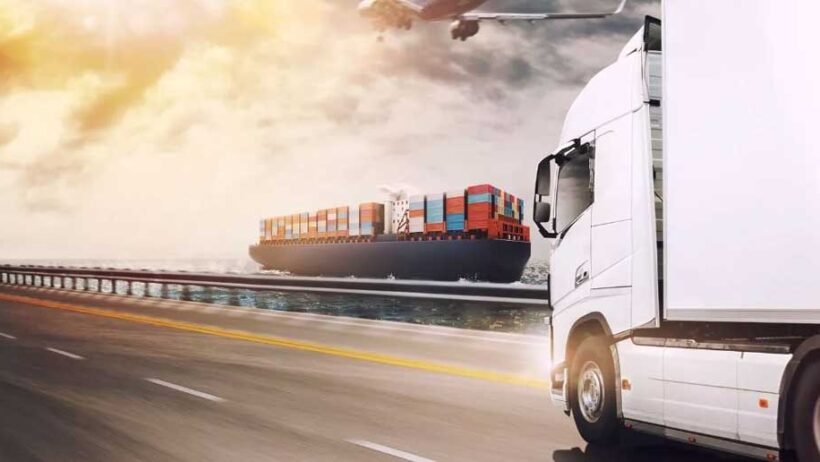In today’s complex logistics environment, specialized freight services have become essential for businesses that need to move goods outside the scope of traditional shipping. Whether it’s oversized machinery, perishable goods, hazardous materials, or high-value electronics, these services provide tailored solutions that ensure cargo is transported safely, efficiently, and in compliance with strict regulations. But what exactly qualifies as specialized freight in 2025, and why has it become so important?
This blog breaks down the scope of specialized freight services, the industries that rely on them, and the trends reshaping how freight carriers operate today.
Understanding Specialized Freight Services
Specialized freight services go beyond standard trucking and logistics. While general freight shipping focuses on palletized goods and full truckloads, specialized freight covers cargo that requires:
- Unique handling techniques(e.g., fragile medical devices).
- Custom equipment(e.g., flatbeds, refrigerated units, or lift-gate trucks).
- Regulatory compliance(e.g., hazardous waste or cross-border rules).
- Highly trained operators(e.g., heavy-haul drivers with certifications).
In essence, specialized freight services are designed to solve logistical challenges that standard carriers cannot.
Categories of Specialized Freight
- Oversized and Heavy Haul Shipments
Transporting industrial machinery, wind turbine blades, or construction equipment often requires flatbed trucks, multi-axle trailers, or pilot vehicles to navigate public roads safely. These moves demand permits, route planning, and in some cases, police escorts.
- Temperature-Controlled Freight
Perishables like fresh produce, frozen foods, pharmaceuticals, and biologics fall under temperature-sensitive shipping. Carriers rely on reefer trucks and real-time monitoring systems to maintain required conditions throughout transit.
- Hazardous Materials (Hazmat)
Chemicals, flammable liquids, radioactive materials, and industrial waste require strict regulatory compliance under DOT, EPA, and international standards. Hazmat drivers must undergo specialized training and certification.
- High-Value and Secure Freight
Electronics, artwork, luxury vehicles, and sensitive government shipments demand extra security measures such as GPS tracking, surveillance, and sometimes armed escorts.
- Fragile and Sensitive Cargo
Medical imaging machines, lab equipment, or glass-based goods require shock-absorbing packaging, air-ride suspension trucks, and white-glove delivery services.
- Expedited and Just-in-Time Deliveries
Industries like automotive manufacturing often require components delivered on-demand to keep production lines moving. Specialized expedited services focus on speed, reliability, and precision scheduling.
Industries That Depend on Specialized Freight
Specialized freight services are not niche; they’re integral to multiple industries:
- Healthcare & Pharmaceuticals– Transport of vaccines, lab samples, and medical devices.
- Construction & Energy– Heavy machinery, turbines, and solar equipment.
- Retail & Luxury– High-value electronics, designer goods, and fine art.
- Automotive– Just-in-time delivery of car parts.
- Agriculture & Food Supply– Perishable produce, dairy, and frozen goods.
Without these services, many industries would face costly delays, compliance violations, or product losses.
The Role of Technology in Specialized Freight
Modern specialized freight services are more advanced than ever, thanks to technology:
- IoT & Telematics– Real-time temperature, location, and condition tracking.
- AI & Predictive Analytics– Route optimization for oversized loads or time-sensitive shipments.
- Blockchain– Enhanced transparency in supply chains, particularly for high-value cargo.
- Autonomous & Electric Trucks– Emerging solutions for reducing risk and emissions in specialized transport.
Technology ensures not only efficiency but also compliance and visibility—two key factors for shippers dealing with sensitive cargo.
Challenges in Specialized Freight
While these services solve many problems, they come with challenges:
- Rising Costs– Specialized equipment, training, and compliance increase shipping expenses.
- Driver Shortages– Finding qualified operators for hazmat or heavy-haul remains difficult.
- Regulatory Complexity– Different states and countries impose varying rules on oversize loads, hazardous materials, and cross-border shipments.
- Environmental Pressures– Shippers are expected to reduce emissions, even in industries where specialized equipment has fewer green alternatives.
Carriers must balance compliance, safety, and efficiency to remain competitive.
Trends Redefining Specialized Freight Services Today
- Sustainability Initiatives
Green logistics is no longer optional. Shippers are adopting electric reefers, carbon offset programs, and optimized routing to reduce emissions.
- Greater Visibility & Transparency
Customers demand full supply chain visibility. Carriers now provide real-time shipment dashboards with condition monitoring, especially for sensitive cargo.
- Customized Solutions
One-size-fits-all logistics doesn’t work in specialized freight. Providers are designing industry-specific solutions, such as biotech-focused cold chain services or heavy-haul packages tailored to renewable energy projects.
- Resilience & Risk Management
Global disruptions—from pandemics to geopolitical conflicts—have highlighted the need for flexible specialized freight solutions. Companies are diversifying routes and investing in contingency planning.
- Growth in Cross-Border Specialized Freight
As global trade increases, compliance with international customs and safety regulations becomes critical for specialized freight operators.
Why Specialized Freight Services Matter Now More Than Ever
The global economy is becoming more interconnected, with supply chains spanning multiple industries and continents. Specialized freight services play a pivotal role by:
- Protecting sensitive, high-value, or fragile goods.
- Ensuring compliance with national and international laws.
- Delivering efficiency for industries that rely on just-in-time operations.
- Building resilience in the face of disruptions.
For businesses, partnering with the right specialized freight provider can mean the difference between meeting deadlines and facing costly delays.
Choosing the Right Specialized Freight Partner
If your business requires specialized freight services, here are key factors to consider when selecting a logistics partner:
- Certifications & Compliance– Ensure the carrier meets industry standards (e.g., DOT, FDA, IATA).
- Experience– Look for a proven track record in handling your type of cargo.
- Technology– Real-time tracking, monitoring, and automated reporting should be standard.
- Equipment– From flatbeds to reefers, carriers should have the right tools for the job.
- Customer Service– Transparent communication and problem-solving capabilities are essential.
Choosing wisely ensures your cargo moves safely, legally, and efficiently.
Final Thoughts
Specialized freight services have evolved far beyond traditional trucking. Today, they encompass everything from oversized equipment to life-saving pharmaceuticals, requiring a combination of custom equipment, trained operators, and advanced technology.
As industries become more complex and global trade continues to grow, specialized freight services are no longer optional—they are a critical backbone of modern logistics. Businesses that recognize their importance and partner with the right providers will gain a competitive edge in efficiency, compliance, and reliability.








